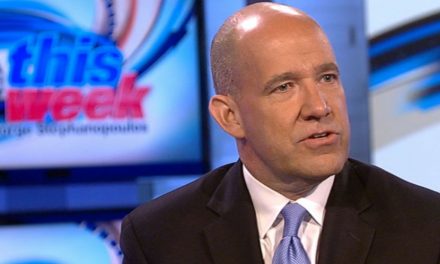Evidently, when we collectively suggested a blog exchange last week, we all forgot the stuff we had to do this week. At least, that’s my excuse for being the lone writer this week at the end of the week. Here are my belated response to Emily’s thoughts, set forth in bullet points. These are not particularly connected but reflect some of the concerns I heard voiced.
- First things first – would I sign this document if I were in this position? The difficulty is, it depends.
- No – When I first read through these points, I read them as a kind of statement of belief, as I see suggested by the title phrase “Commitment to the following tenets of Church Teaching” (see the list of points here). The difficulty for me that tenets of Church Teaching means, for me, always already reference to the Creed, and it seemed odd to me to have a list like this one that didn’t first of all reference the Creed. In fact, it seems doubly strange given that these points- Eucharist, infallibility, immaculate conception – depend on the Creed. So we don’t have to affirm the divinity of Christ or his rising from the dead, but we do have to affirm the immaculate conception? It makes me wonder: what’s really the connection here between groups like this one (of which there are many) and the Church? Perhaps this is similar to Emily’s point:
I would want to be sure that the statement reflected the core dogmas of the Catholic faith.
- Yes – But perhaps insisting on the Creed goes too far. This list could be seen simply as a set of things that the group just doesn’t want to debate, just as my online mom’s group has agreed not to debate breastfeeding. So whatever a speaker is going to say, it’s just not going to deal with these seven aspects. It strikes me that that’s fair, and as someone who might speak on prudence – which wouldn’t have to develop the seven tenets in any way. Further, as someone who has publicly written (on this blog even) in favor of some of these tenets as they relate to theology, I might be okay even developing some points. Perhaps this is the kind of idea Paul Connors is making in comments to Emily’s piece:
The purpose of the statements is surely **not** to provide a summary of the “core dogmas of the Catholic faith”, but to pick seven specific issues that commonly distinguish between those who think that, although some contemporary issues may be ripe for development in all kinds of expansive and perhaps unpredictable ways, some specific parts of those issues are *not* going to be developed in any definitely *contradictory* way.
- Maybe no. – In the end, I’m not sure, but I think I’d still lean toward no. That said, I think it depends on a whole host of things I can’t grasp online: what’s the crowd, what’s the set up, how do the people in the group and I generally communicate and get along? I’ve signed statements from the archdiocese and spoken to a range of groups. Yet one of the key concerns that is displayed by both the list and the theological concerns is our Catholic culture wars – the proverbial split between those who agree with church teaching on contraception and those who focus on economic and environmental issues. Emily and I – as many readers know – have some disagreements over some of these issues, but our aim – and the aim at this blog – has been to resist culture wars, and to resist seeing each other as in or out.
I worry about culture wars a lot, and I worry about perpetuating them. I worry about doing that especially because I’m a theologian.
- The Culture Wars – One of the key reasons I worry about perpetuating the culture wars is because I think the culture wars are causing us collectively to lose our soul.
To develop one example: Emily wrote a different blog piece last week about Charlie Camosy’s America interview and his earlier essay in the Notre Dame Church Life Journal, which describes culture wars among moral theologians. We might see Camosy’s argument as an articulation of a culture war, too, one had in the academy. Emily’s response (and Megan McCabe’s interview in America) both make important arguments about why intersectionality, social science research, and so on, are important for doing theology.
So look: Catholic moral theology has a history, and discussing history and sociology and so forth is important for reflecting on moral theology as currently done. I’m a lay woman theologian writing in a field that was once solely occupied by priests conferring on how to hear confessions. To the extent that I think Camosy’s arguments don’t adequately account for that, I disagree with what he says.
At the same time, I agree with Camosy. In point of fact, I don’t know how many moral theologians engage “the other side” nor how often. I don’t see Lisa Cahill on the stage with John Grabowski, for example. I hear murmurs from “both” sides about how others are always welcome to the conversation – but no real engagement.
And I remain haunted by one Catholic moral theology conference I went to recently, where one theologian, not from the US and therefore not a participant in our uniquely American culture wars in my estimation, did a moral theology paper that referenced scripture and that talked about moral theology in terms of proclaiming the Gospel. The theologian who spoke after him, though, made no reference at all to any kind of theological point, choosing instead to focus vaguely on suffering (surely a theological concept! but not discussed as such at all) but the only references in the paper were sociological ones. This is one example of many.
It was, to me, a denier cri – a cry to say: look, if we want to be theologians, shouldn’t we at the least be proclaiming Christ – that is, shouldn’t we be creedal? Shouldn’t we at the least be proclaiming scripture prodigiously? Augustine’s On Christian Doctrine suggests all the ways Christians might read scripture (which is to say, in numerous ways) and also articulates some of the many ways we might engage cultural influences that are not Christian (which is to say, if it speaks something true, very good).
So going back to the seven tenets. I think we might be seeing two sides of the same coin. But that if we are serious about aiming against culture wars, and serious about demonstrating our unity in Christ, we might all be more willing to speak Christ.





Thanks for your piece, Jana. Like you, I do wish this blog was a bit more consistent in posting.
On the “would you sign” question, I think there is no disagreement from anyone that the Creed is central to our profession of belief as Christians. The really interesting question that seems to be disputed is whether those seven points in that group’s oath are logically connected to our more fundamental profession of “I believe.” That, of course, is a very old question. I might not sign that oath, but only because the group unfairly (and, ironically for the name of the group, unprofessionally) sprung the oath last minute like they did to Dr. Reimer-Barry.
On the “culture wars” issue, it has been disheartening to see the uncritical applause offered to the “responses” to Charlie’s thoughtful, 3000 word sweeping indictment of our field. He’s not a minor figure deserving of dismissal, but the responses I’ve seen have treated his concerns as completely off base and haven’t really engaged the heart of his argument. One of the most celebrated points in the responses went something like this: “Camosy claims any non-theological method is by definition out of bounds for theologians. But even Thomas Aquinas drew on Aristotle. Therefore, contra Camosy, theologians may justifiably use non-theological methods such as intersectionality. Camosy’s critique fails.” This rebuttal implied that Charlie Camosy failed to account for a basic fact covered in every undergraduate moral theology or philosophy course that discusses Aquinas. The rebuttal totally misconstrued Camosy’s central point. Camosy claims that, too often, intersectionality is not a complementary tool, but a rival worldview. Maybe he’s wrong about that. But the responses took on a straw-man. It’s not hard to see why some of us think slogans like “all are welcome” are disingenuous. Camosy’s ideas are not welcome enough to be taken seriously on their merits.
Although the responses suggest Camosy has a simplistic notion of “the tradition,” I don’t think that’s fair. I don’t know anyone who sees “the tradition” as “monolithic.” I read Camosy’s concern to be that too many treat “the tradition” like a corpse that is useful only insofar as its organs can be harvested for use in a totally different body: anything good in “the tradition” is only what can survive past the rejection stage. Some of us, however, are protesting, “not dead yet!”
Here’s my basic disagreement with Charlie’s piece: I don’t really buy the claim that “intersectionality” is operating “hegemonically” to marginalize those in moral theology who take a more irenic approach to “the tradition.” This is only because I don’t think any set of groups has the influence to be “hegemonic.” I see the current situation as more akin to going through a divorce: growing apart toward separate lives (though the final sections of Charlie’s essay do treat the problem more like a divorce). Many of us are just doing very different things from very different starting points. To the extent that we are “growing apart” because of rival fundamental assumptions about what our field is all about, there is a kind of crisis in the discipline. Maybe counseling could show us that we are not as far apart as we think. But my sense is that Mom and Dad have been trending in different directions for years, staying together only “for the family.” We’ve been thinking, “I don’t know you anymore” for a long time.